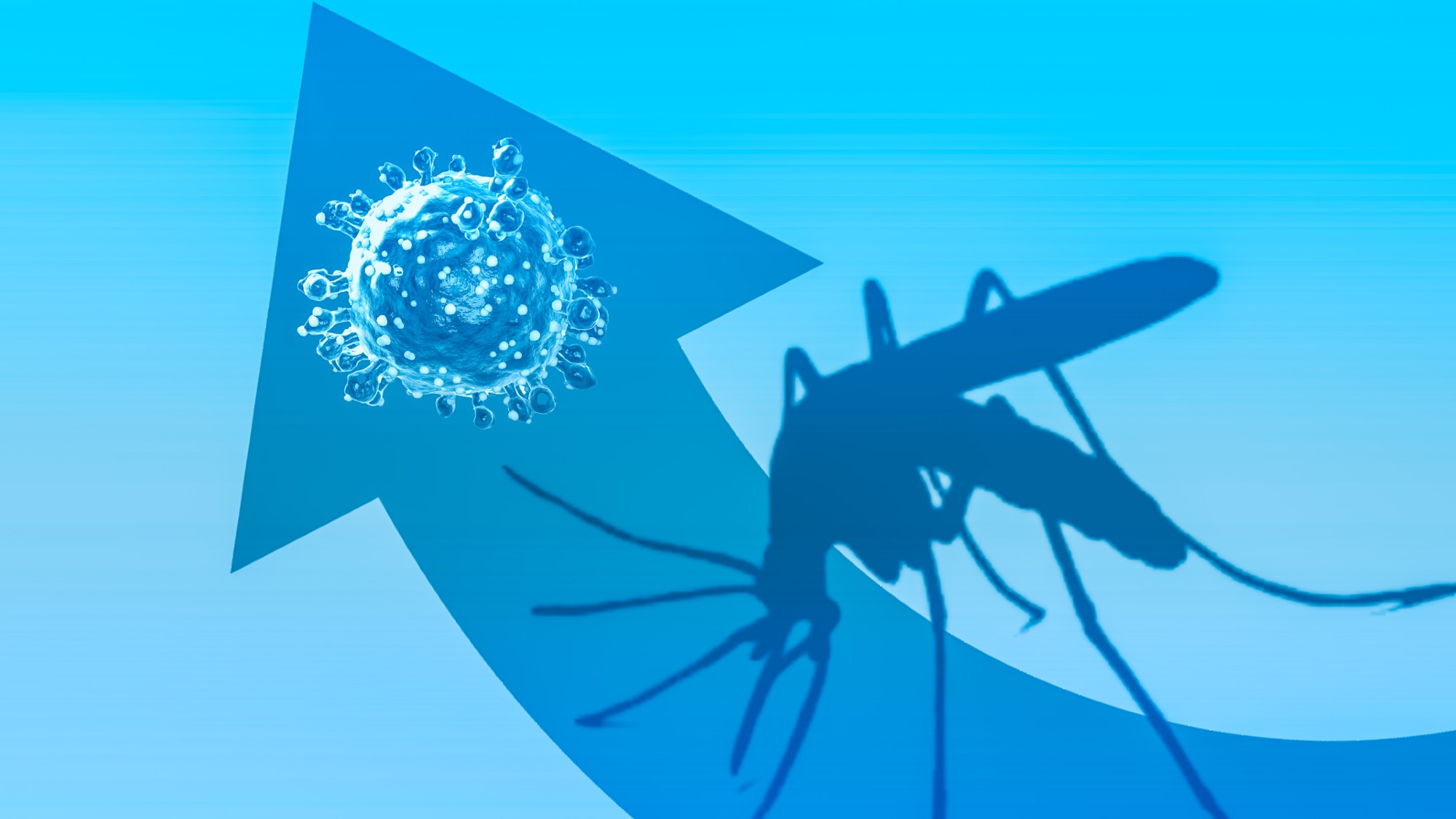Sloth fever shows no signs of slowing down
The vector-borne illness is expanding its range


A free daily email with the biggest news stories of the day – and the best features from TheWeek.com
You are now subscribed
Your newsletter sign-up was successful
The Oropouche virus, also known as sloth fever, was not seen outside the Amazon until recently. Prior to 2023, only a few hundred cases were recorded annually. But now the virus has been spreading across the Western Hemisphere, and infections are likely only going to increase.
What is sloth fever?
Sloth fever is mostly spread by a small insect called the biting midge, which lives in rural areas all over the world. "Sometimes this midge bites you, and you don't realize," William de Souza, a virologist at the Kentucky College of Medicine, said to National Geographic. "You don't see because it's so fast." Midges can transmit the virus to several animals, including sloths and humans. The virus is vector-borne and does not spread directly from person to person. Instead, "when a midge bites an infected host, it can pass on the pathogen to a human during a subsequent bite," said Vox. The virus may also be sexually transmissible, but there are yet to be documented cases.
Infection from the Oropouche virus can cause fevers, coughs, chills and body aches. Largely, people survive it, and many cases are asymptomatic. But in severe cases, it can be deadly. It also poses a particular risk to those who are expecting, as it may "trigger a fever that may cause pregnant people to miscarry or their babies to have birth defects known as microcephaly," similar to the Zika virus, said Salon.
The Week
Escape your echo chamber. Get the facts behind the news, plus analysis from multiple perspectives.

Sign up for The Week's Free Newsletters
From our morning news briefing to a weekly Good News Newsletter, get the best of The Week delivered directly to your inbox.
From our morning news briefing to a weekly Good News Newsletter, get the best of The Week delivered directly to your inbox.
Outbreaks of sloth fever used to be limited to forests, but that changed in 2023 when it began "spreading in metropolises like Rio de Janeiro," said Vox. This allowed for wider transit when travelers brought the diseases back to many other places. Since then, Oropouche fever has "sprung up in the U.S., Canada and Europe in people returning from the afflicted region." The outbreak has "killed at least five people."
Why is it spreading?
The expanded range of sloth fever is largely due to human activity. "Dynamics like deforestation, urban sprawl, international travel and gaps in surveillance are converging to drive up the dangers from infections spread by animals," said Vox. Researchers have also found that, along with biting midges, certain species of mosquitoes are capable of spreading the infection. More insects could also be spreading candidates in the future.
Past strains of Oropouche have "mutated to form a version that's better and faster at infecting cells," said National Geographic. As a result, "people previously infected in the Amazon could be susceptible to reinfection by the new strains," said de Souza. On top of this, climate change has expanded the range of vectors for the virus. Higher temperatures and rainfall "make more of the world an ideal place to breed" for mites and mosquitoes. This "could increase their contact with urban zones, which, for now, tend to have fewer midges."
There is currently no cure for the virus, so experts recommend taking precautions to avoid being bitten, like wearing long clothing and using bug spray. Other vector-borne illnesses have also been spreading more rapidly. "We are seeing cumulative threats because we are seeing not just one vector-borne disease," said Tatiane Moraes de Sousa, a researcher at the Oswaldo Cruz Foundation and a professor at the State University of Rio de Janeiro, to Vox. "In a lot of scenarios, we are also maintaining high levels of communicable diseases."
A free daily email with the biggest news stories of the day – and the best features from TheWeek.com
Devika Rao has worked as a staff writer at The Week since 2022, covering science, the environment, climate and business. She previously worked as a policy associate for a nonprofit organization advocating for environmental action from a business perspective.
